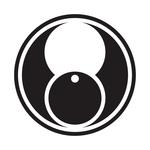Mikhail Gorbachev (President of the Soviet Union 1985-1991, Nobel Peace Prize Laureate 1990, founder of The International Foundation for Socio-Economic and Political Studies, and co-founder of State of the World Forum) writes of Ervin Laszlo and the WorldShift 2012 movement...
"WorldShift 2012 is a handbook for the twenty-first century that speaks to you in person. Indeed, this is a message that is addressed to you and to all of us. It is written in the hope that you will not only read it, but will also think through the things it tells you. And with the further hope that you will draw the necessary conclusions, your own conclusions, for yourself, your family, your friends, and everyone close to you.
Why did the author of this book, Ervin Laszlo—the famous scientist and humanist, and president of the Club of Budapest—choose this specific form, the form of a message addressed to us, to each and every one of us, his readers?
In general, when someone’s future or some aspect of the world that surrounds us in daily life is in question, we see the gist of the issue fairly easily and quickly. We see the advantages and dangers and draw the conclusions, deciding what steps to take. This is natural, it corresponds with our habits, it is part of our everyday thinking and behavior. For someone living in a complex world, common sense dictates that he or she must think about whether or not to adapt to the given circumstances, or try to change them. The situation is different when we confront problems that affect the whole of the world, the destiny of all humankind. We are not used to questions of such dimensions. It may seem that they are far away and that some time, somehow, they will be solved, indeed that someone “up there” is taking care of them. “Why us? We are only little people.”
This is why the book in our hand, dedicated to global, world-encompassing problems, addresses us in plain and logical language and marshals persuasive evidence. This makes our task easier. The task is simple. Get down to the basics, understand that global problems are not foreign to us. They are our problems. We are all touched by them, and touched by them not any less than we are by ordinary, everyday things. And it is we, each one of us, who not only can understand these problems, but can also do something significant to overcome them.
What Is at Stake?
The fact is that with the passing of time a whole pyramid of diverse problems has been accumulating in every part of the world: social, political, economic, and cultural problems. Contradictions have appeared in society—in a different way in each country, but present all the same—and they have created conflicts and crises. Even wars. The relationship between humans and nature has become more and more complex and strained. The air has become poisoned, rivers polluted, forests decimated. The numbers of contradictions keep growing, and they are becoming deeper. Society is showing the symptoms of sickness.
In our various ways all of us, in every part of the world, have expressed our dissatisfaction with this state of affairs, have demanded changes, and are still demanding them. Isn’t this story familiar? I think it is.
However, at a certain point, these challenges and contradictions become so serious that changes become unavoidable. If the leaders who decide the life of society prove incapable of understanding the necessity for changes, and of doing something about it, people will not put up with them any longer. Violent movements will arise, such as strikes and disturbances. Society will enter a period of crisis. How will the crisis be resolved? This is difficult to predict. Society’s sickness affects every single member, every single citizen, and threatens everyone with suffering. The end result may be an explosion, a bloodbath that nobody wants, yet which comes about spontaneously.
Another Way Out
Is there another way out, a path beyond the crisis? The book in our hand gives an answer: yes, there is another way. We must not wait until society’s crisis reaches the danger point. We must act! Every person can act. If everyone does his or her bit, together we can accomplish what is necessary. We can make an impact on those who decide the politics and the destiny of society, and motivate them to begin making the necessary changes. Changes that not only resolve the crisis, but take us on a path of survival, of healthy development for people and nature, and a better quality of life for all. That is our salvation.
The human community has reached the point where it must decide whether it allows events to take their course (and if it does, we will all be put to a difficult test) or whether it manages to make the turning that changes the character and the content of development for the benefit of humankind. To make this decision, we must first become conscious that change is truly necessary. Then we must understand what we must do to avoid the worst, and how we must do it.
This book helps us to understand the current situation of our planet and to find the path we must take. It helps us determine what we must do and how we must do it to ensure our common well-being. The future that confronts us is an open future. All of us—and that includes you, the reader—can do our bit to decide it.
Read this handbook, and start thinking. This is important for you, for your family, for your present or future children and grandchildren, for your friends, and for everyone around you."

